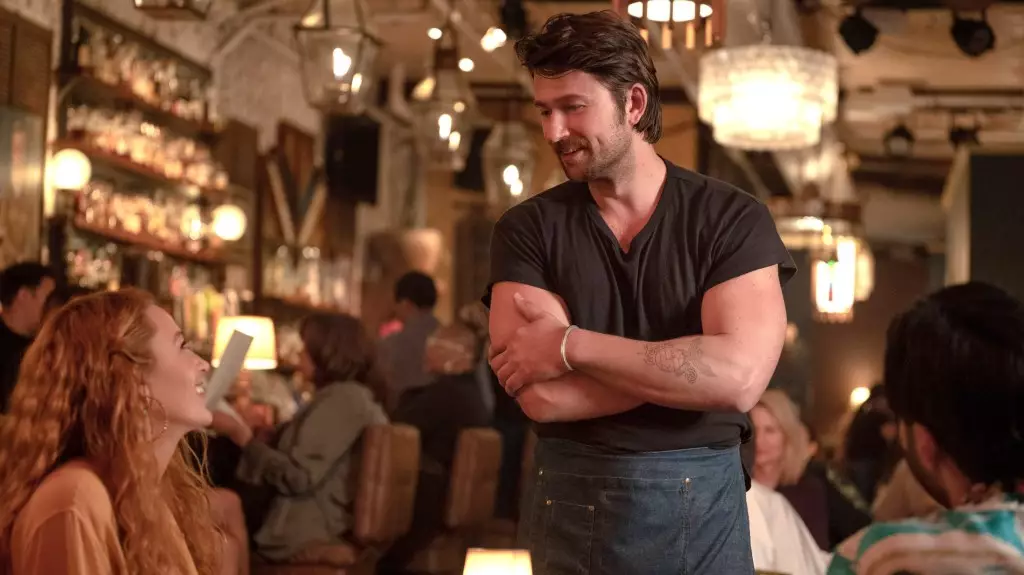The entertainment industry has often been a glamorous façade, but beneath its dazzling surface lies a troubling reality of misconduct and power dynamics. The recent uproar following Blake Lively’s complaint against filmmaker and actor Justin Baldoni has shed light on this disturbing underbelly. The complex tale illuminates themes of systemic harassment and the courageous voices that challenge this pervasive environment, including those of Lively’s co-stars and other industry influencers.
On Friday, Lively’s detailed complaint emerged, alleging a series of inappropriate behaviors and actions by Baldoni during the production of “It Ends With Us,” a film based on Colleen Hoover’s deeply resonant novel about domestic violence. From uninvited physical contact to crude remarks and the assertion of a hostile work atmosphere, Lively detailed behaviors that sparked outrage not only from her fellow cast members but also from the larger Hollywood community. The complaint, encompassing ten allegations, has triggered a strategic and collective backlash against Baldoni, ultimately revealing how deeply ingrained such issues are in the industry.
Brandon Sklenar, who plays Lively’s teenage love interest in the film, has emerged as a vocal supporter in this turbulent period. By sharing the complaint on his Instagram with an impassioned plea to “READ THIS,” he has joined a chorus of Hollywood voices rallying behind Lively. This includes notable figures such as Gwyneth Paltrow and Amy Schumer, emphasizing a collective resolve against tolerating unacceptable behavior. Notably, the cast of “The Sisterhood of the Traveling Pants” also expressed support, showcasing the strength of community in a trying time.
Moreover, the repercussions for Baldoni have been swift. After the complaint’s release, his agency, WME, promptly dropped him from their roster. Other corporate entities, including the film’s distributor Sony, quickly backed Lively, exemplifying an urgent shift in industry sentiments towards supporting individuals who speak out against harassment. This rapid response indicates a growing recognition of the importance of accountability in Hollywood.
Amid these allegations, the implications for PR strategies in Hollywood have become a focal point. Individuals like Amber Heard, who has faced significant media scrutiny herself, have condemned retaliation campaigns against women who come forward, calling them “horrifying” and “destructive.” This sentiment highlights an urgent need for transparency and ethical behavior in industry representations. The response to Lively’s complaints reveals the fragility of reputations within the entertainment realm and the swift manipulation of public perception that often follows alleged misconduct.
The dynamic of whether Lively’s allegations will pave the way for broader industry change remains to be seen. However, the initial reactions signal a shift away from the silence that has perpetuated harassment for too long. Such moments of upheaval have the potential to catalyze significant reforms in how the industry handles allegations and supports its members.
Sklenar’s call for an end to the vilification of women who speak out against harassment touches on a vital issue—changing the narrative around victim blame in Hollywood. By drawing attention to the significance of Lively’s experiences, he underscores the importance of championing those who bravely confront their aggressors.
The ongoing discourse surrounding this incident illustrates a critical juncture in Hollywood’s evolution. As audiences continue to engage with these narratives, a more profound cultural shift is needed. The industry must prioritize environments that foster respect and accountability to prevent future complaints from becoming the status quo.
As the industry grapples with the implications of Lively’s complaint against Baldoni, the seeds for a transformative change are being planted. With increasing support for victims and a collective refusal to tolerate misconduct, there is hope that Hollywood can redefine its culture for future generations. This moment is essential not only for the individuals involved but serves as a beacon of change for all in the entertainment sector. The unfolding events remind us that it is through the courage of voices like Blake Lively’s that true progress can be achieved.

